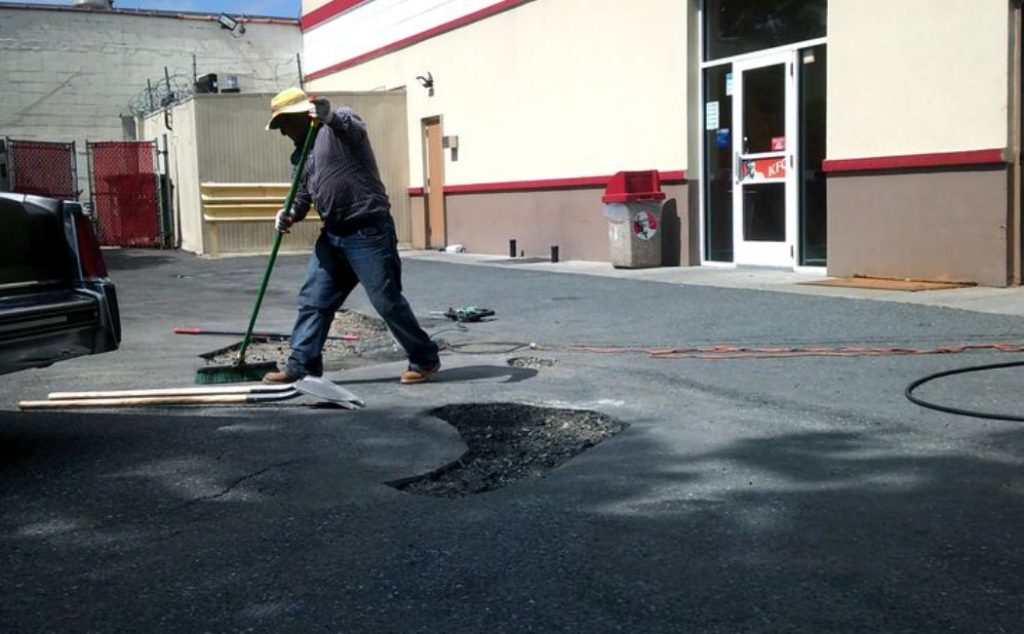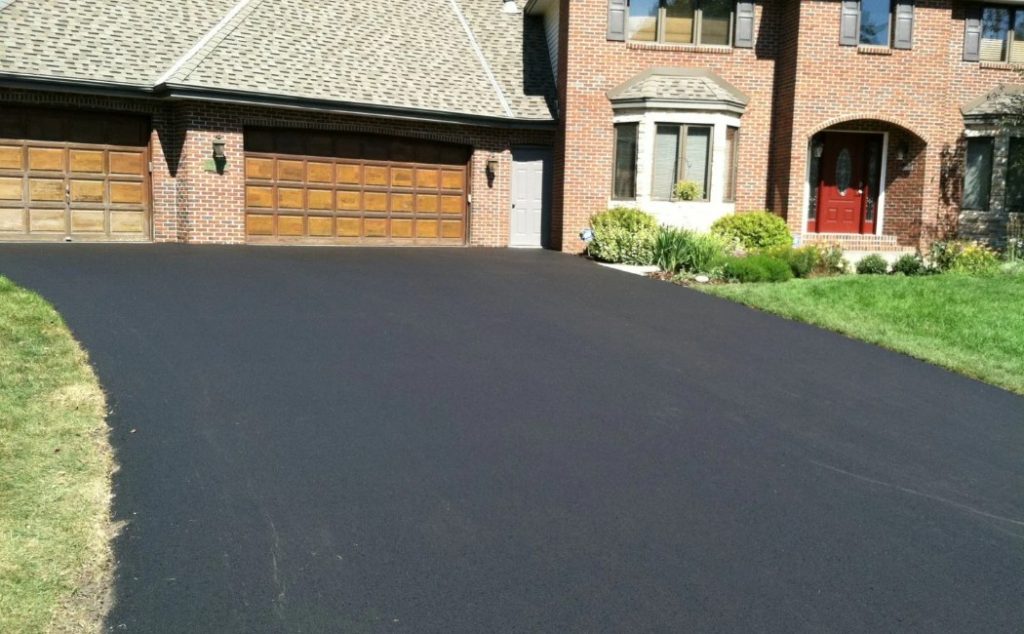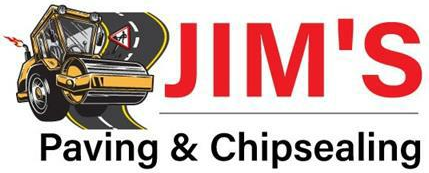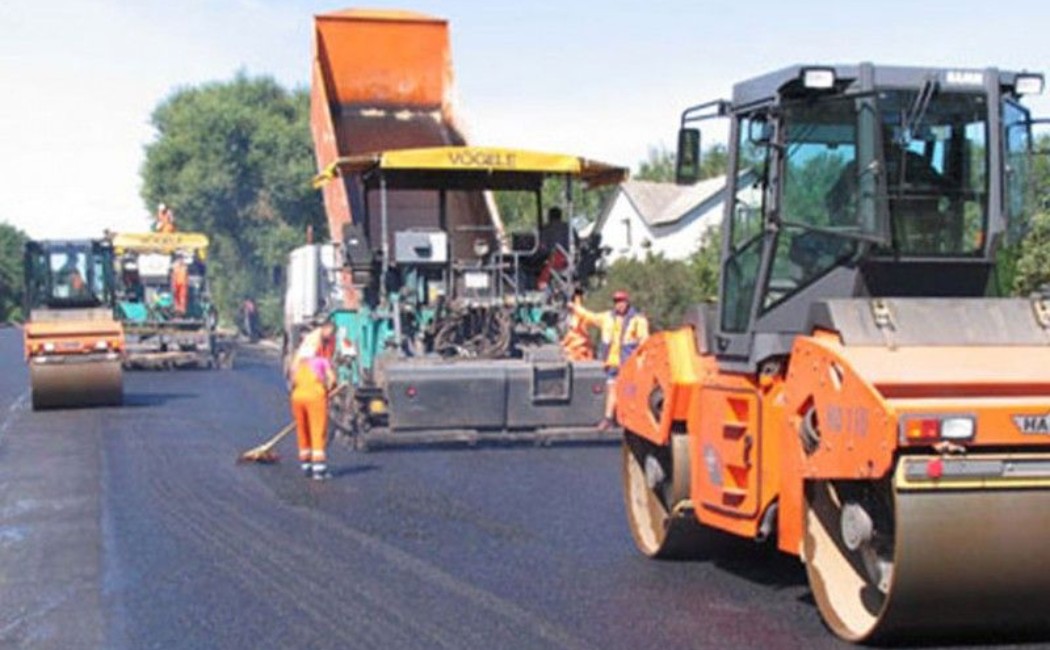When planning a new driveway or resurfacing project, one of the first questions property owners ask is: How long will asphalt paving actually last? The answer depends on several important factors, including the quality of installation, the amount of traffic, the local climate, and the care it receives over time. Residential asphalt paving usually lasts 15 to 30 years. Homeowners can make it last longer by maintaining it well and making repairs on time. In this guide, we’ll cover what you need to know. We’ll discuss average lifespan, maintenance tips, and cost factors. This way, you can safeguard your investment and enjoy a beautiful driveway for years to come.
What’s the Average Lifespan of Asphalt Paving?
The lifespan of asphalt paving depends on where and how it’s used, but one of the main reasons it’s such a popular material is its natural durability.
On average, most driveways, parking lots, and roadways last 15 to 30 years when installed correctly and cared for consistently.
The specific timeline depends on the type of traffic it supports and the environmental conditions it faces, which is why asphalt in residential neighborhoods typically outlasts asphalt in high-traffic commercial areas.
Whether you’re paving a driveway, lot, or pathway, understanding expected lifespan helps you budget wisely and plan for maintenance.
How Long Does a Residential Driveway Last?
- A properly installed residential driveway usually lasts 15–25 years when sealcoated regularly.
- Heavy trucks, frequent parking, or extreme weather conditions can shorten its life span.
- Lighter-use driveways in mild climates can sometimes exceed 25 years.
How Long Do Commercial Parking Lots Last?
- Busy parking lots typically last 10–20 years, depending on daily traffic volume.
- Frequent truck deliveries and poor drainage accelerate wear and tear.
- Regular resurfacing every 8–12 years can keep parking lots serviceable longer.
How Long Do Roads and Walkways Last?
- Roads tend to last 15–25 years, depending on vehicle load and construction quality.
- Sidewalks and pathways with light use may last 20 years or more.
- Municipalities often apply overlays rather than replace the full surface.

What Factors Affect the Longevity of Asphalt Driveways?
The lifespan of your asphalt driveway depends on several factors. It starts with the installation and continues through its entire life. Both the foundation’s quality and your area’s climate are key to durability. Homeowners can improve their asphalt’s performance by focusing on these factors. Regular driveway repair and maintenance help extend its lifespan.
Does Installation Quality Matter?
- A strong asphalt surface starts with proper grading and soil compaction.
- A poorly prepared foundation can lead to premature cracking and settling.
- Choosing experienced asphalt paving services is essential for long-lasting results.
How Does Traffic Impact Asphalt?
- Driveways that only support passenger vehicles typically last much longer.
- Constant parking of heavy trucks, RVs, or equipment increases stress on the surface.
- Commercial properties see more rapid wear because of heavier traffic volume.
How Do Climate and Drainage Play a Role?
- Freeze-thaw cycles expand cracks and create potholes more quickly.
- Poor drainage allows water to pool, weakening the base beneath the asphalt.
- Sun exposure can oxidize the surface, causing brittleness and fading.
What Maintenance Extends Asphalt’s Life?
One of the best ways to maximize the value of asphalt paving is through consistent care and upkeep. A good maintenance plan can often double your driveway or lot’s life. This means smoother use and fewer expensive repairs. Asphalt resurfacing helps extend your pavement’s life. It protects against wear from the elements and heavy use. Besides sealing, repairing, and cleaning, resurfacing is very effective.
How Often Should Sealcoating Be Applied?
- Apply the first sealcoat about 6–12 months after installation to allow curing.
- Reseal the driveway every 2–3 years, or sooner in harsh climates.
- Sealcoating acts as a protective shield against UV rays, oil, and water damage.
What Repairs Should Be Done Regularly?
- Fill small cracks quickly before they expand into larger structural issues.
- Patch potholes and depressions to prevent water infiltration and further damage.
- Apply surface overlays when the pavement is worn but still structurally sound.
How Can Cleaning and Upkeep Help?
- Sweep leaves, gravel, and dirt to prevent drainage blockages.
- Remove oil and fuel stains immediately to avoid chemical breakdown.
- Use snow shovels and tools that won’t gouge or scratch the surface.

When Should You Repair vs. Replace Asphalt?
Not every issue with asphalt requires a complete replacement, but knowing when repairs are enough and when replacement is necessary is critical to avoiding wasted money.
Minor problems can usually be fixed quickly and affordably, while widespread damage or structural issues require a more permanent solution.
What Are the Signs Asphalt Needs Repair?
- Small cracks, faded surfaces, or localized potholes can be patched.
- Minor drainage issues that don’t affect the entire foundation.
- Surface wear that can be restored with sealcoating or overlays.
What Are the Signs Asphalt Needs Full Replacement?
- Severe alligator cracking or widespread structural damage.
- Large drainage failures that cause persistent water pooling.
- Sub-base erosion that reappears even after patching or overlays.
What Are the Benefits of Timely Replacement?
- Eliminates ongoing repair costs from repetitive small fixes.
- Provides a fresh, smooth, and attractive surface that enhances curb appeal.
- Prevents foundation damage to your home or property.
How Much Does Asphalt Driveway Installation Cost?
Cost plays an important role in choosing paving materials, and asphalt is well known for its affordability compared to alternatives like concrete.
While the final price depends on project size and specifications, asphalt remains one of the most cost-effective options for homeowners who want both performance and value.
What’s the Average Driveway Paving Cost?
- Typical asphalt driveways cost $4,000–$8,000, depending on size and depth.
- Larger driveways or custom finishes may increase the price range.
- Affordable paving packages are available for standard residential projects.
How Much Do Repairs and Sealcoating Cost?
- Sealcoating costs $300–$700, depending on surface area.
- Crack filling and pothole patching average $100–$400 per repair.
- Resurfacing saves money by avoiding full replacement.
How Does Asphalt Compare to Concrete Costs?
- Asphalt is cheaper to install than concrete in most regions.
- Concrete driveways often cost nearly double and are harder to repair.
- Asphalt provides quicker installation and easier maintenance.
What Are the Benefits of Asphalt Driveways?
Asphalt offers unique benefits that make it one of the most trusted paving materials for residential and commercial properties alike.
From cost-effectiveness to aesthetic appeal, its advantages make it a preferred choice among homeowners across the country.
Why Is Asphalt a Smart Investment?
- Asphalt is affordable to install and cheaper to maintain than concrete.
- Driveways can be resurfaced rather than replaced, saving thousands.
- Its durability and sleek finish make it a long-term investment.
How Does Asphalt Enhance Property Value?
- A smooth, freshly paved driveway greatly improves curb appeal.
- Well-maintained asphalt signals quality upkeep to potential buyers.
- Investing in professional paving boosts overall property value.
How Does Asphalt Compare to Concrete?
- Asphalt is more flexible, making it resistant to cracking in cold climates.
- Concrete may last longer, but requires higher upfront and repair costs.
- Asphalt offers faster installation and easier seasonal maintenance.

Why Choose Jim’s Paving & Chip Sealing?
Jim’s Paving & Chip Sealing provides expert asphalt paving services that are built to last. Our skilled team specializes in asphalt driveway installation, sealcoating, resurfacing, and affordable driveway paving, delivering results that enhance curb appeal and withstand the test of time. With years of hands-on experience, we proudly offer:
- Custom paving solutions tailored to residential and commercial needs.
- Long-lasting repairs and resurfacing for aging driveways and lots.
- Honest pricing and professional craftsmanship you can trust.
Contact us today for a free consultation and see how our paving experts can extend the life of your driveway while improving the look and value of your property.
Conclusion: Protect Your Asphalt and Extend Its Life
Asphalt paving is a smart investment that offers a balance of durability, affordability, and beauty. With an average lifespan of 15–30 years, proper installation and maintenance can ensure decades of reliable performance.
By investing in sealcoating, timely repairs, and professional asphalt paving services, you’ll save money in the long run and enjoy a driveway or lot that always looks its best. Don’t wait until cracks and potholes multiply; take proactive steps today to protect your investment.
FAQs About Asphalt Paving Services
Q1: How long does asphalt paving last on average?
Most asphalt driveways last 15–25 years, while commercial lots last 10–20 years, depending on usage and climate.
Q2: How soon can I drive on new asphalt?
You can drive on it after 72 hours, but full curing can take up to a year.
Q3: How often should asphalt be sealcoated?
Every 2–3 years is recommended, but areas with harsh weather may need it sooner.
Q4: Is asphalt better than concrete?
Asphalt is generally more affordable, flexible, and quicker to repair, making it the preferred option in colder regions.
Q5: Can old asphalt be resurfaced instead of replaced?
Yes, resurfacing is often a cost-effective solution if the foundation is stable.

